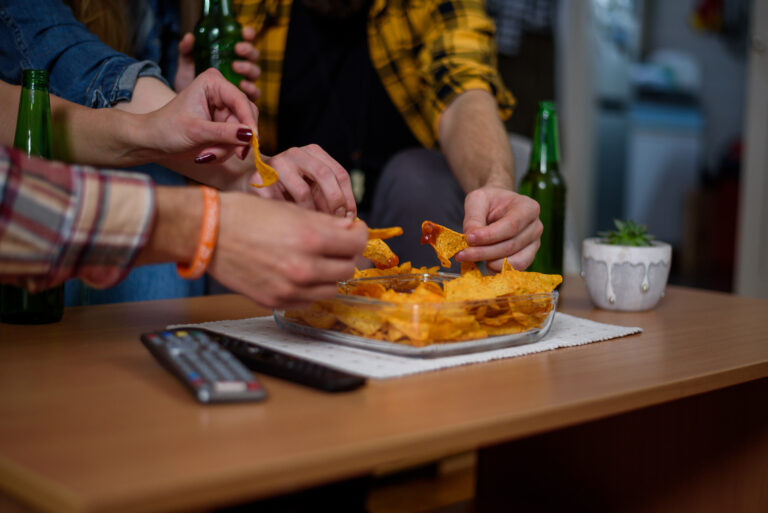I love dip, and I hate having half a chip without dip just because my first dip didn’t cover the full chip. So I double dip; or when at a party, I flip and dip. Is that really so wrong?
The short answer: Well, yes, it actually is.
The explanation: Redipping a chip (or veggie or cracker) into an individual serving of dip is no different than reusing a spoon or fork for multiple bites of your own food. But redipping a chip into a shared bowl of dip is like passing around saliva between all those who are dipping into that bowl.
A Clemson University study conducted on double-dipping found that after a bitten chip was dipped into a salsa that had had no detectable bacteria, the salsa now held about 1,000 bacteria per ml of dip – a significant increase! The increase was a bit less in chocolate and cheese dips (150-200 bacteria/ml), but it’s still more bacteria than we’d like to get from others.
It is particularly an issue if any double-dipping person has a virus, even if they are asymptomatic or are taking medication that covers their symptoms.
While the dip-and-flip method (i.e., taking a bite of the chip then turning it around to dip the unbitten end) may not carry saliva with it, the chip has connected with the person’s hand, which according to UofL Health typically contains between 10,000 and 10 million bacteria. So, bacteria is still being put into the dip for others to scoop up.
So, the answer is yes, double-dipping and dipping-and-flipping both spread germs from one person to others using the dip. Single dipping follows a similar premise as using a serving spoon in family-style dining, as no one wants a licked spoon or fork put back into a shared bowl. An interesting note here is a related change that has evolved in China since the COVID-19 pandemic. It has long been tradition for those sharing a meal to use their personal chopsticks to pick up food from the communal dish. In fact, as one Chinese woman explained, sharing food using personal chopsticks and giving others a bite of our food “are ways to show love and intimacy.” But that tradition is gradually vanishing, as the people are being encouraged to consider the health aspects and use serving utensils or chopsticks instead, with the government even putting out public service announcements to instill the new behaviors.





